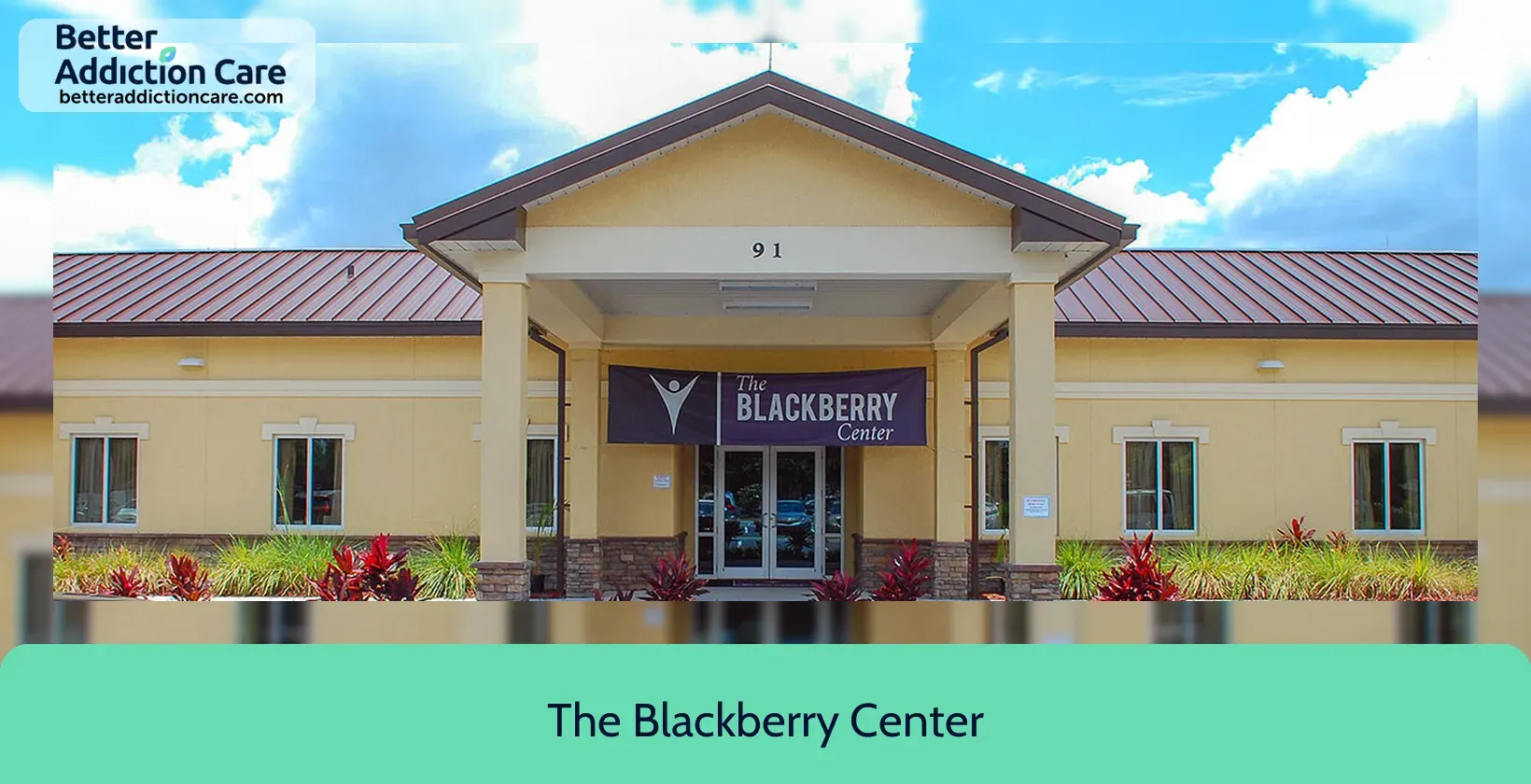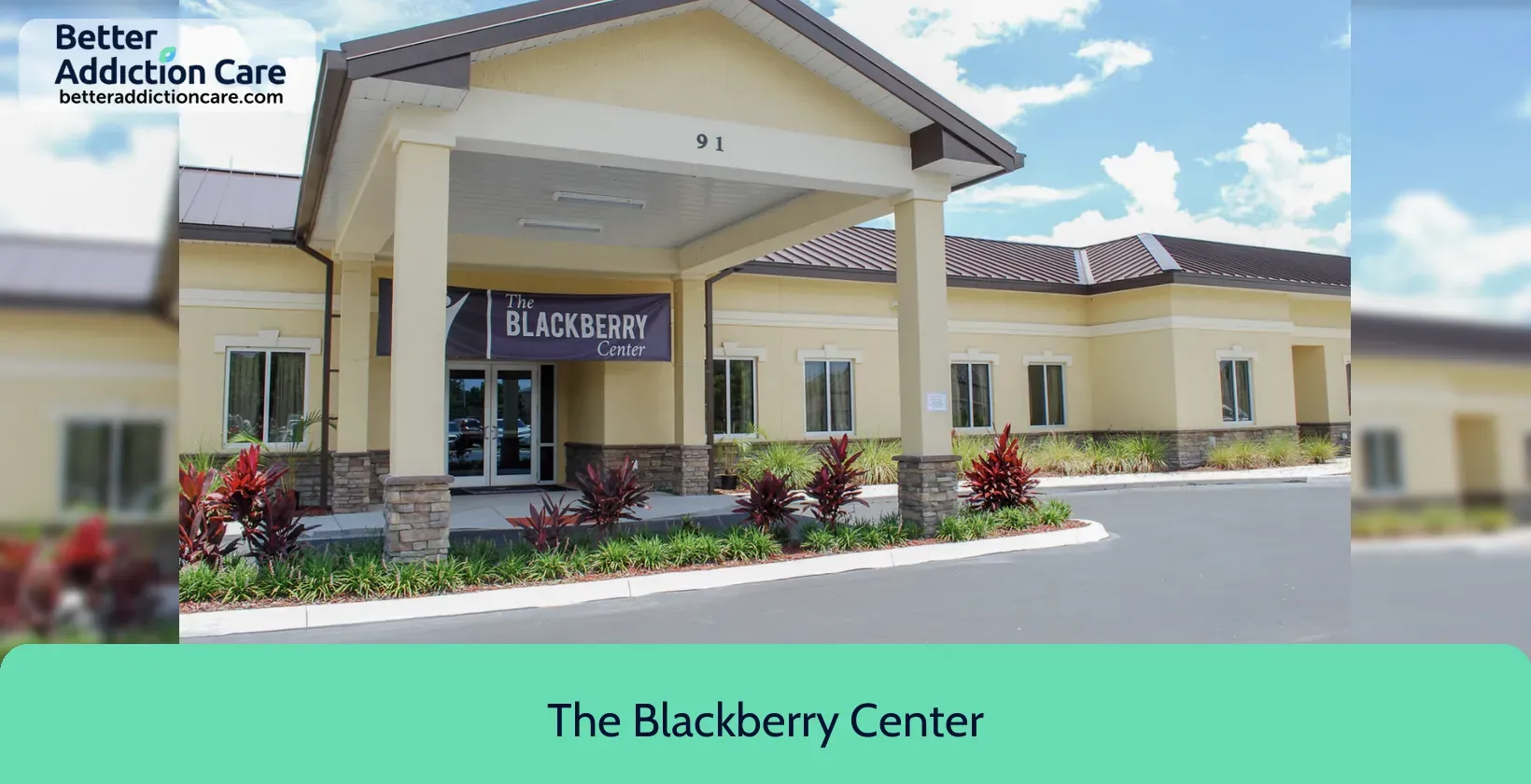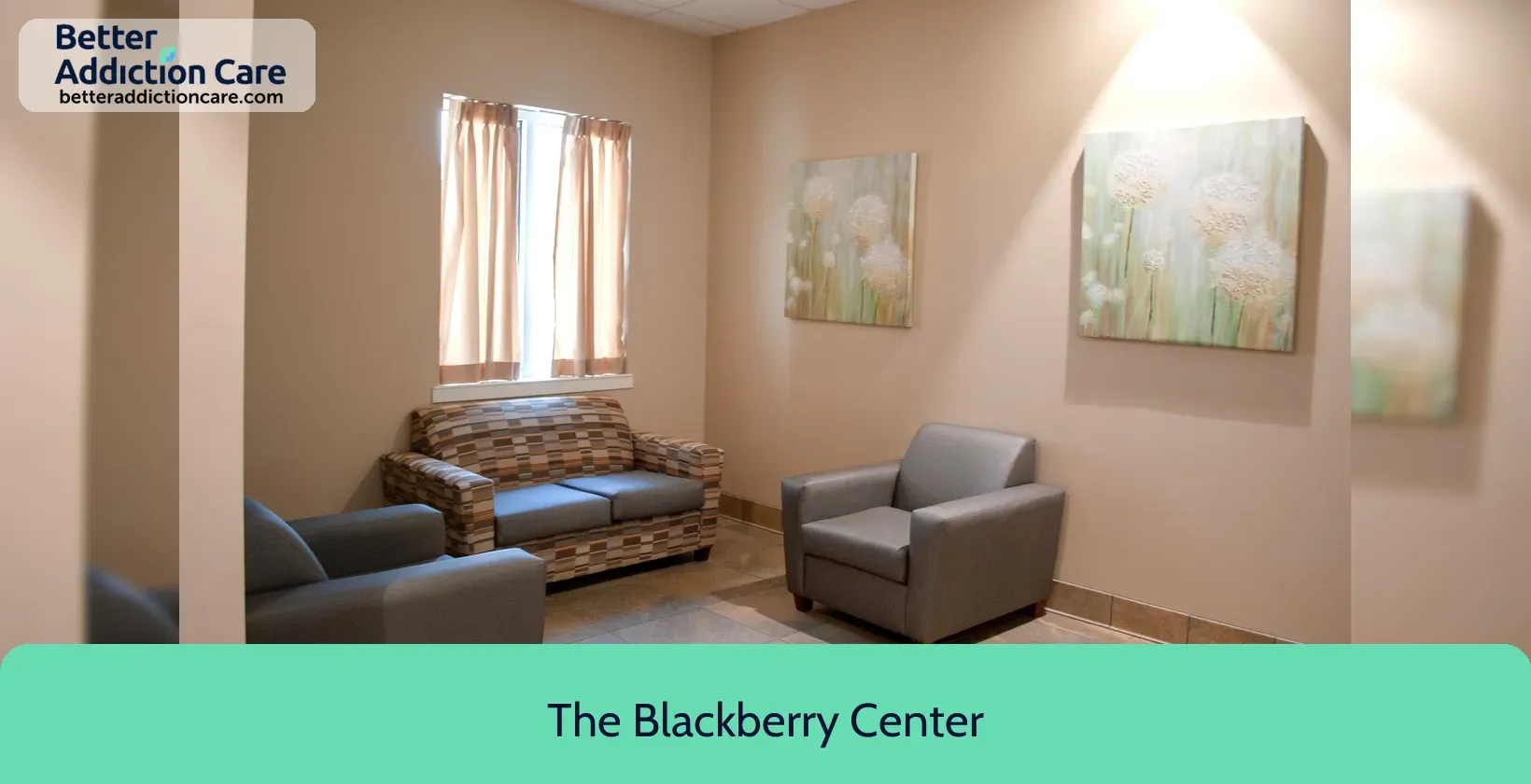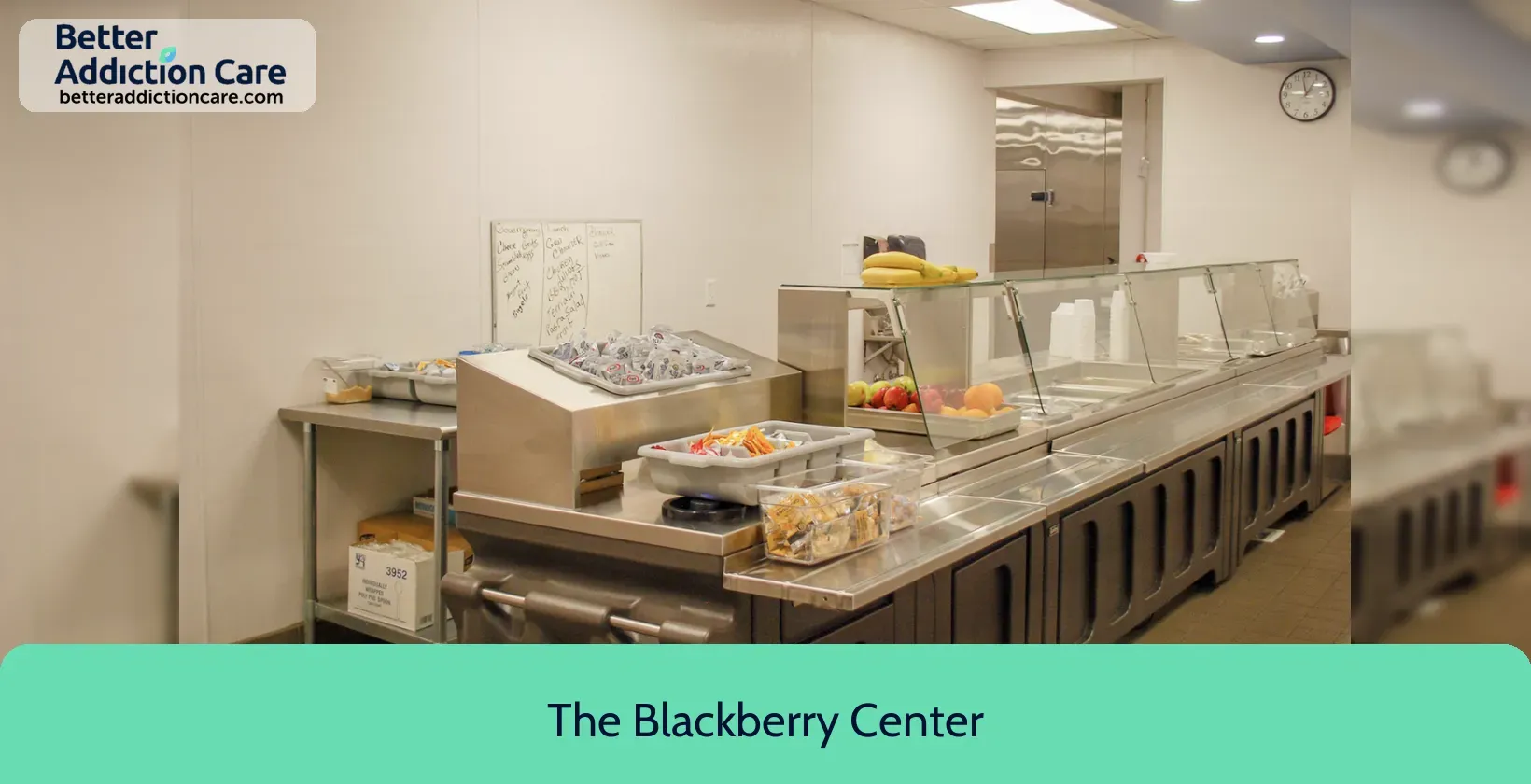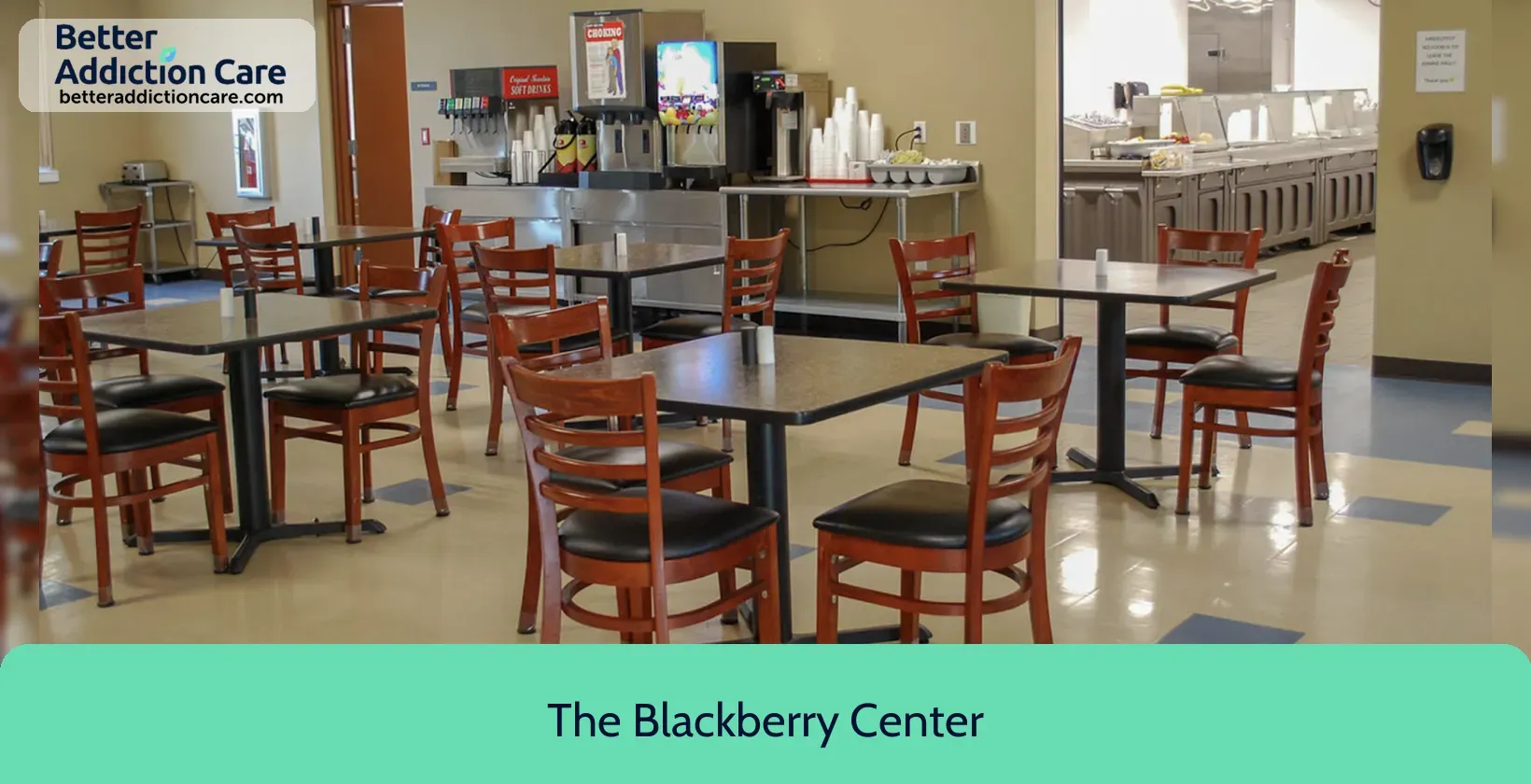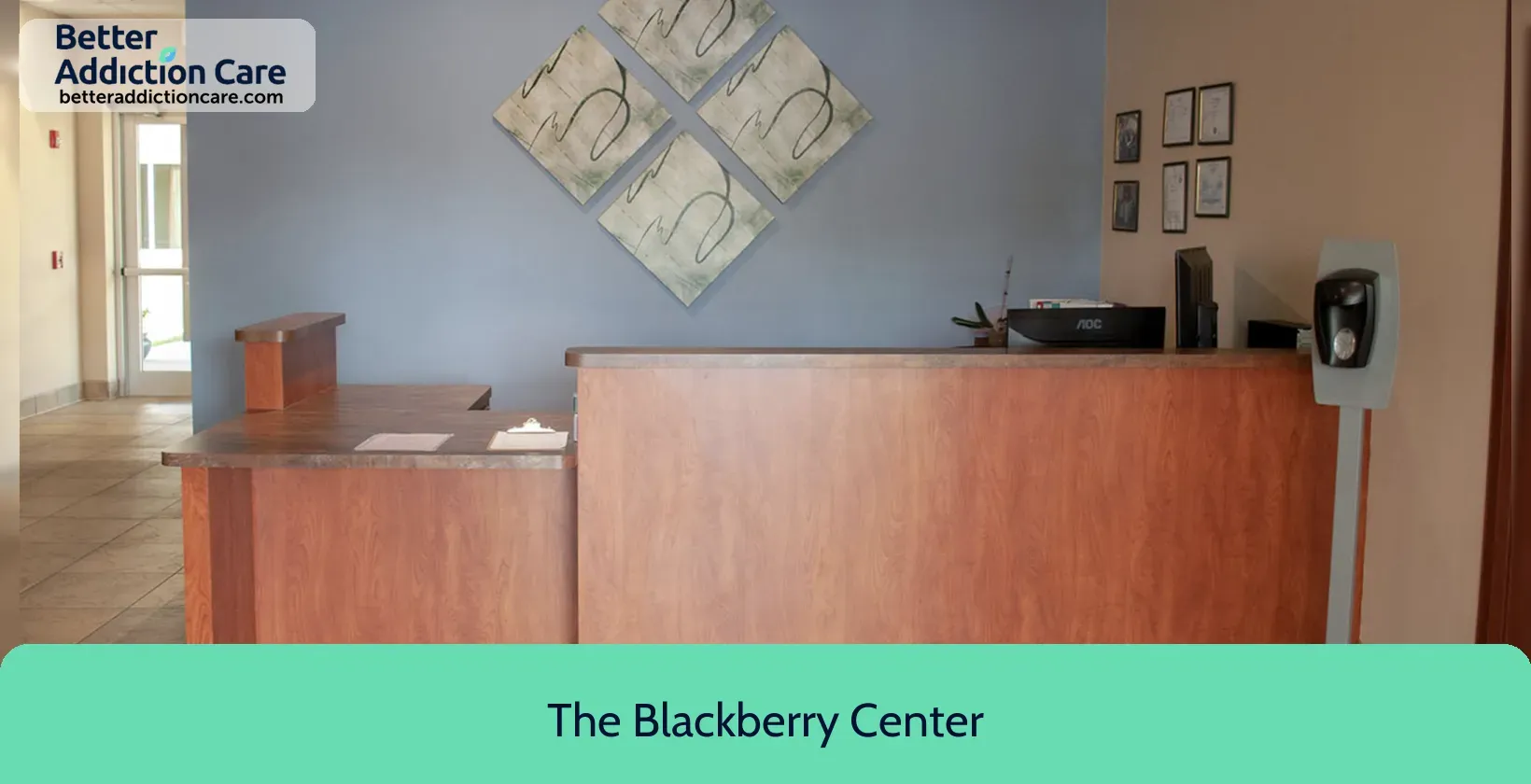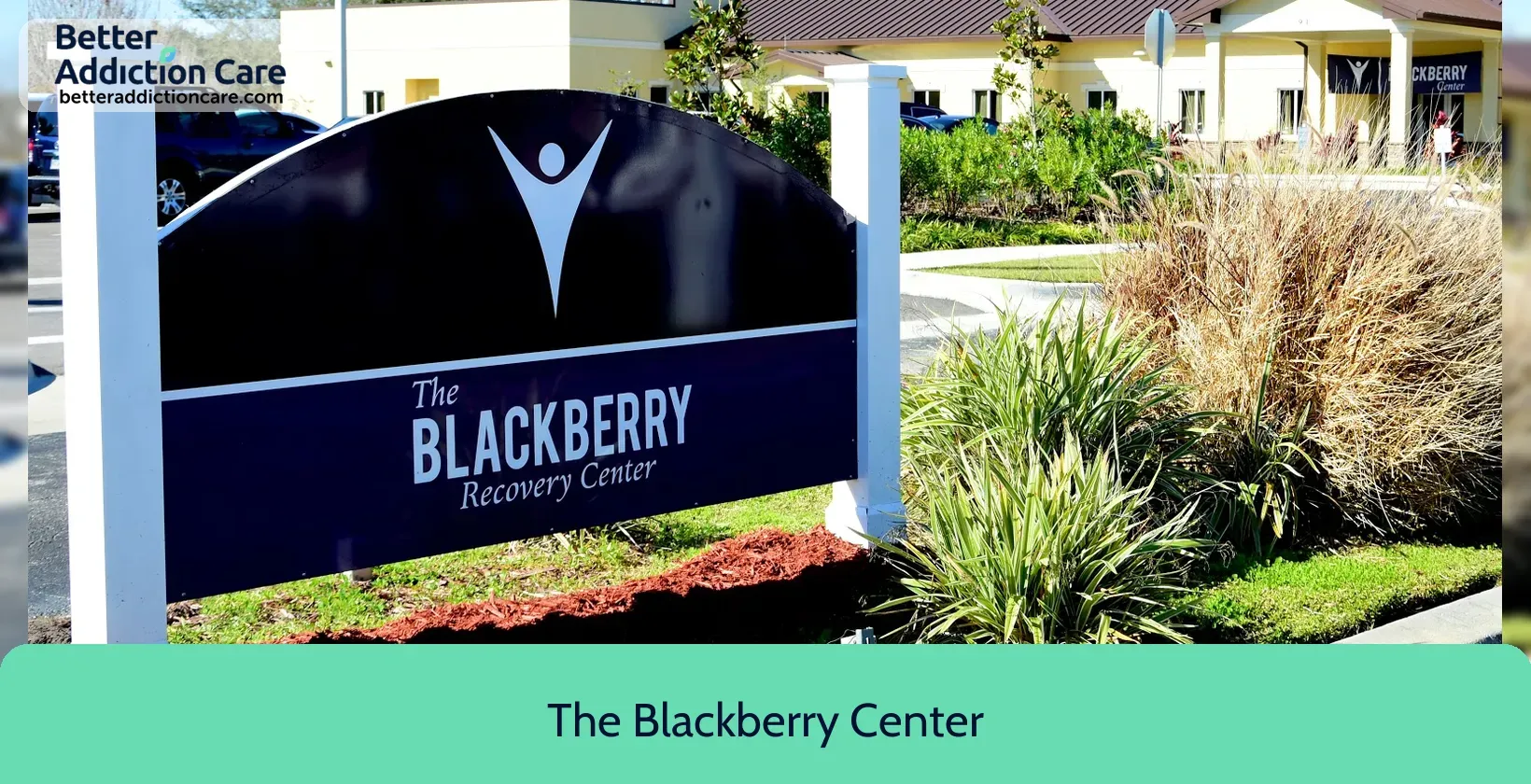The Blackberry Center
Overview
The Blackberry Center is an accredited substance abuse treatment center that provides inpatient and outpatient detoxification, for men and women from 18+ years of age. As part of their special programs, The Blackberry Center treats active duty military. To help patients achieve sobriety, The Blackberry Center provides intake assessments. Afterward, patients receive 12-step facilitation, family counseling, and individual psychotherapy during treatment. The Blackberry Center is located in Saint Cloud, Florida, providing treatment for people in Osceola County, accepting cash or self-payment, private health insurance, and federal military insurance (e.g., tricare).
The Blackberry Center at a Glance
Payment Options
- Cash or self-payment
- Private health insurance
- Federal military insurance (e.g., TRICARE)
- Monthly
- Aetna
Assessments
- Comprehensive mental health assessment
- Comprehensive substance use assessment
Age Groups
- Young adults
- Adults
Operation
- Treatment duration
- Private for-profit organization
Highlights About The Blackberry Center
6.81/10
With an overall rating of 6.81/10, this facility has following balanced range of services. Alcohol Rehabilitation: 8.00/10, Drug Rehab and Detox: 6.00/10, Insurance and Payments: 6.27/10, Treatment Options: 6.97/10.-
Alcohol Rehabilitation 8.00
-
Treatment Options 6.97
-
Insurance and Payments 6.27
-
Drug Rehab and Detox 6.00
Accreditations
The Joint Commission:

The Joint Commission, previously known as JCAHO, is a nonprofit organization that accredits rehabilitation organizations and programs. Established in 1951, its mission is to enhance the quality of patient care and showcase excellence in healthcare delivery.
Registration: 556119
NAATP:

The National Association of Addiction Treatment Providers (NAATP) accreditation is a recognized standard within the field of addiction and behavioral health. This accreditation signifies that a treatment provider has undergone a rigorous evaluation process to ensure the quality and effectiveness of its programs and services. NAATP accreditation serves as a valuable marker of a provider's commitment to adhering to established industry standards, offering evidence-based treatments, and prioritizing the well-being of individuals seeking addiction and behavioral health support.
LegitScript:

The LegitScript Accreditation signifies an organization's commitment to ethical and high-quality care in the field of addiction treatment and behavioral health. This accreditation allows treatment providers to be included in Google's network, ensuring compliance with HIPAA privacy regulations.
Treatment At The Blackberry Center
Treatment Conditions
- 24-Hour Clinical Care
- Mental health treatment
- Alcoholism
- Opioid Addiction
- Substance use treatment
Care Levels
- Hospital inpatient/24-hour hospital inpatient
- Detoxification
- Aftercare
- Halfway house
- Outpatient
Treatment Modalities
- 12-step facilitation
- Family counseling
- Individual psychotherapy
- Group counseling
- Marital/couples counseling
Ancillary Services
Special Programs
- Active duty military
Get Help Now
Common Questions About The Blackberry Center
Contact Information
Other Facilities in Saint Cloud

6.89
DISCLAIMER: The facility name, logo and brand are the property and registered trademarks of Transition House, and are being used for identification and informational purposes only. Use of these names, logos and brands shall not imply endorsement. BetterAddictionCare.com is not affiliated with or sponsored by Transition House.
